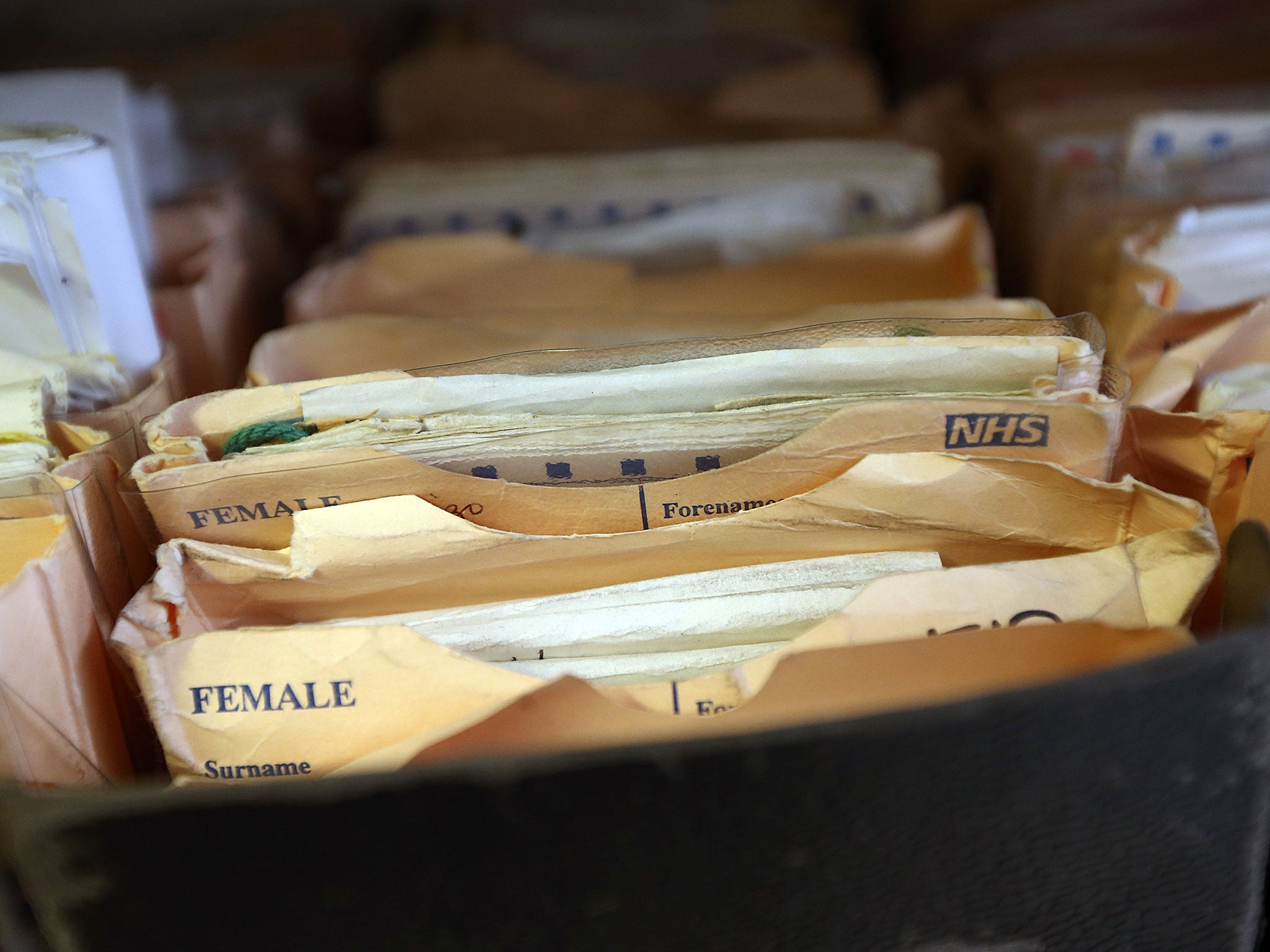Every hospital patient will be given a barcode as part of plan to create a 'paper free' NHS
Proposal for appointments and prescriptions to be arranged via phone apps

Your support helps us to tell the story
From reproductive rights to climate change to Big Tech, The Independent is on the ground when the story is developing. Whether it's investigating the financials of Elon Musk's pro-Trump PAC or producing our latest documentary, 'The A Word', which shines a light on the American women fighting for reproductive rights, we know how important it is to parse out the facts from the messaging.
At such a critical moment in US history, we need reporters on the ground. Your donation allows us to keep sending journalists to speak to both sides of the story.
The Independent is trusted by Americans across the entire political spectrum. And unlike many other quality news outlets, we choose not to lock Americans out of our reporting and analysis with paywalls. We believe quality journalism should be available to everyone, paid for by those who can afford it.
Your support makes all the difference.Every patient in hospital will be given an individual barcode to ensure they are given the correct drugs and treatment, as part of plans to make the NHS “paper free” by the end of the decade.
Under proposals to be outlined on Tuesday, patients will also be able to book appointments, order repeat prescriptions and access their GP records using NHS smartphone apps.
The Government is also going to examine the feasibility of installing free wi-fi in every hospital and GP surgery in England. By 2020, NHS England says, it will have digitalised every patient and care record in the country – meaning that whenever patients come into contact with the health service, medics will have all of their clinical notes and test results available immediately. The changes will not apply in Scotland and Wales, but similar plans are being developed in the devolved regions.
In addition, patients, pieces of medical equipment and drugs will be identified using barcodes for the first time. This, it is claimed, will help to ensure that the right patient will be given the right drug, at the right dose and at the right time.
While the NHS has a troubled record with large-scale IT projects, NHS England’s national director for patients and information, Tim Kelsey, will say that this time the organisation is in a position to deliver on its pledge.
A new set of “digital standards” that healthcare providers must provide will be integrated into NHS contracts while organisations will be inspected by the Care Quality Commission to ensure that they are being implemented.
The Government estimates that annual cost of paper storage is between £500,000 to £1m for each healthcare trust – money which, it says, will be invested in more doctors and nurses.
“Every day, care is held up and patients are kept waiting while an army of people transport and store huge quantities of paper round our healthcare system,” Mr Kelsey will say. “This approach is past its sell-by date. We need to consign to the dustbin of history the industry in referral letters, the outdated use of fax machines and the trolleys groaning with patients’ notes.”
Innovations such as electronic prescribing systems, which help doctors ensure the right medicine is provided to the right person in the right quantity can halve medication errors, yet only 14 per cent of NHS hospital trusts currently use such systems.
In addition, a study published in the British Medical Journal found that death rates at two major hospitals fell by more than 15 per cent when nurses were given handheld computers to monitor patients’ vital signs.
The drop in mortality represented more than 750 lives saved in a single year across the two sites, which could equate to tens of thousands of lives across the NHS.
“As well as saving precious resources, technology can dramatically reduce errors,” Mr Kelsey will say. “Urgent action is a moral imperative where paper is the currency of clinical practice.”
“The NHS needs to get over the idea that we’ve had too many false starts and we can’t do technology. While bringing our own systems into the digital age, we must do more to help the public and clinicians take advantage of the game-changing opportunities on offer to improve outcomes for patients.”
Join our commenting forum
Join thought-provoking conversations, follow other Independent readers and see their replies
Comments